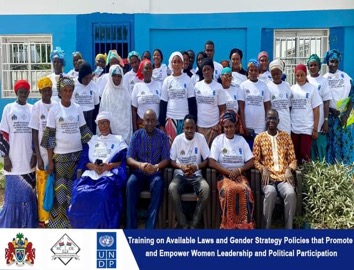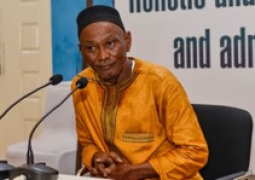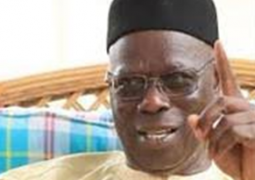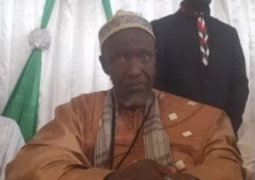
The training attracted over 300 women leaders, including elected and nominated women councillors, lady councillors and other prominent women who participated in the training sessions. The participants were drawn from various sectors, including mothers’ clubs, youth groups, opinion leaders, regional, district and local authorities.
The training, funded by the Peacebuilding Fund through the United Nations Development Programme (UNDP), marks a significant step towards increasing women's representation in decision-making processes in the country.
Under the joint UN Women Leadership Project titled "Strengthening Women's Political Participation and Leadership through Reformed Legislation, Community-level Leadership, and Political Parties' Engagement in The Gambia," these trainings focused on raising awareness about available laws and gender strategy policies that promote women's leadership and political engagement.
These trainings were held in three administrative regions of The Gambia - Upper River, Central River and Lower River Regions - from November 18th to 26th, 2023.
Yusupha Bojang, program manager of NCCE, highlighted the significance of these trainings in addressing the constraints and inhibitions that prevent women from actively participating in politics and assuming leadership positions.
He observed that despite women constituting the majority of the population in The Gambia, their representation in leadership and decision-making roles remains significantly low.
These trainings were aimed at equipping women with the necessary knowledge and skills to overcome barriers such as cultural norms, legal frameworks and competency gaps that hinder their political engagement.
“It delved into the legal frameworks that safeguard women's rights and challenge discriminatory practices, as well as examined the strategies and policies that can bridge the gender gap in leadership positions.”
Bojang, however reminded that attending the trainings and gaining deeper knowledge alone is not enough, saying it’s through active actions and collective efforts that can bring about meaningful change.
“Hence all relevant stakeholders have a responsibility to use their influence and platforms to dialogue, educate, and advocate for women's leadership and political participation, and challenge societal norms and stereotypes that hinder women's progress.”
Thomas Kimaru, project manager for the UNDP Women Leadership Project, gave a background of the project and provided some statistics to highlight the existing gaps in women's representation in decision-making processes and leaderships at all levels of governance and administration.
He outlined the importance of women's participation and fair representation in leadership and politics, saying it is a right and not a favor.
He expressing his institution’s resolve to support women and continue to collaborate with NCCE and other stakeholders to empower and advocate for women in leadership.
At the end of the events, participants expressed gratitude to NCCE and its partners for the timely and informative training.
They acknowledged the importance of the training and inspiring statements, which alluded to encouraging more women to take leadership positions and break societal norms and barriers hindering their participation in politics.





